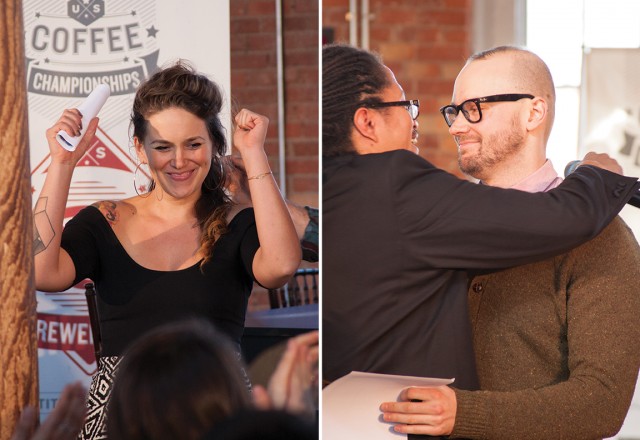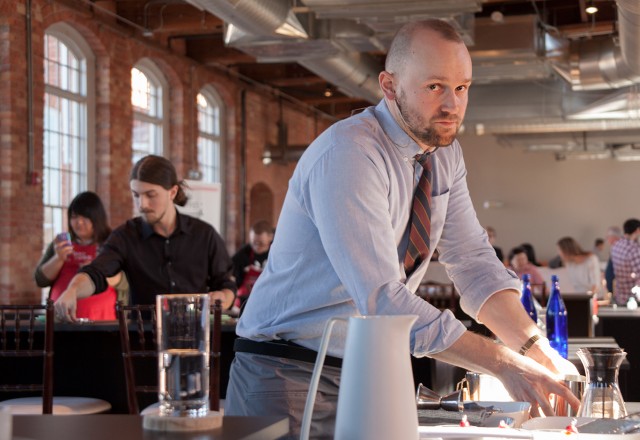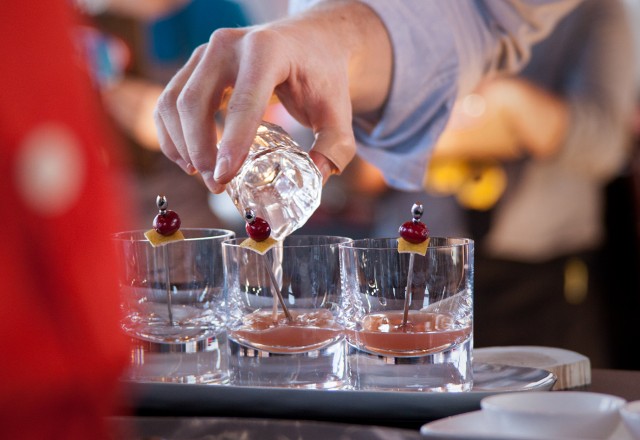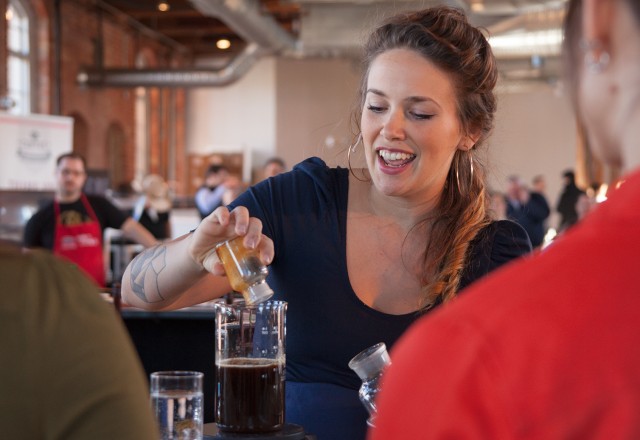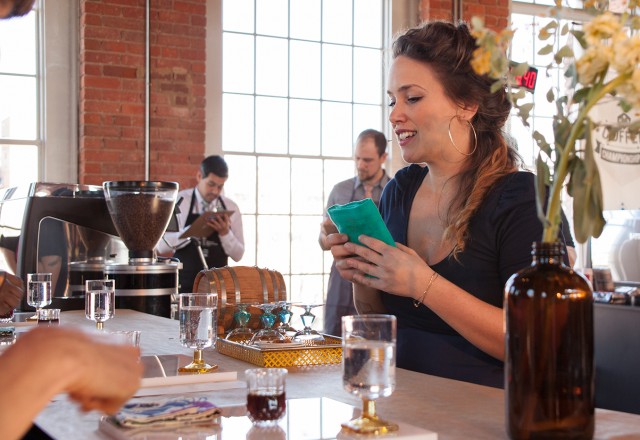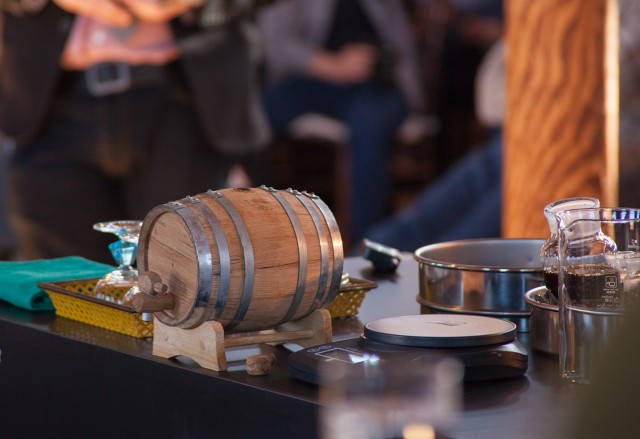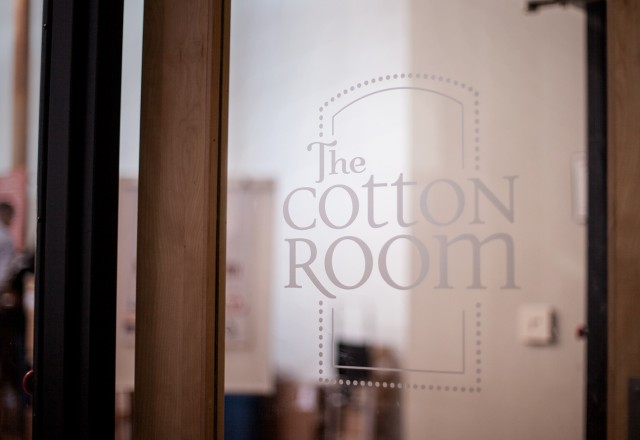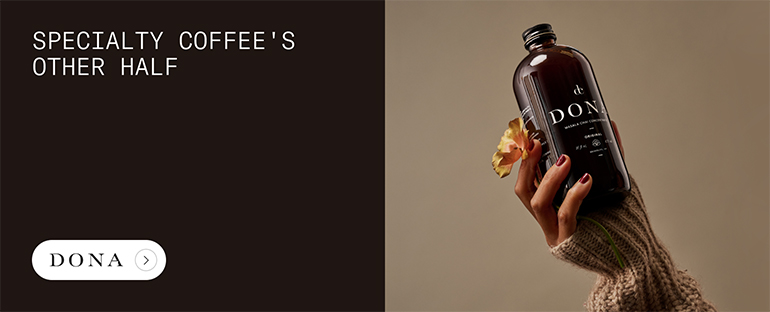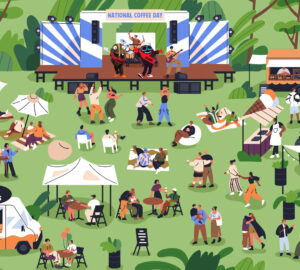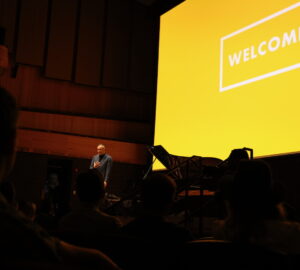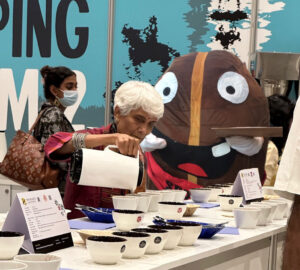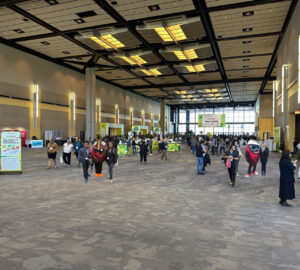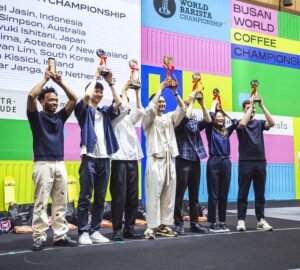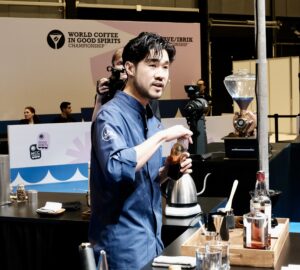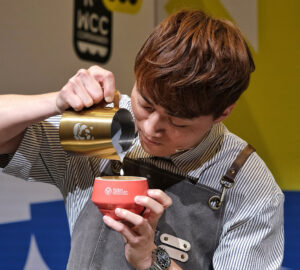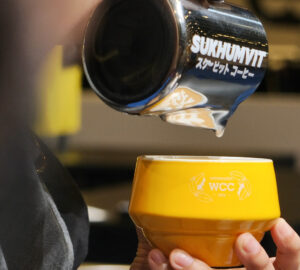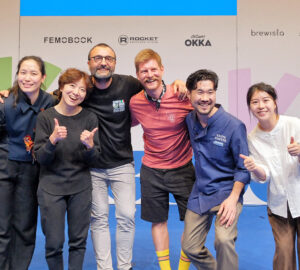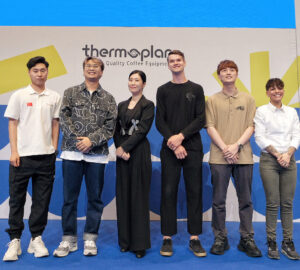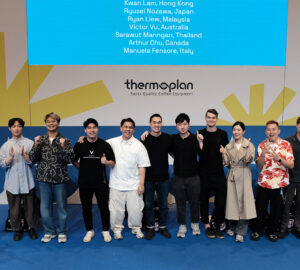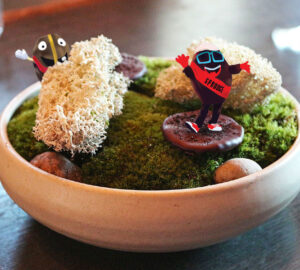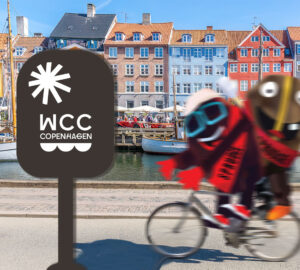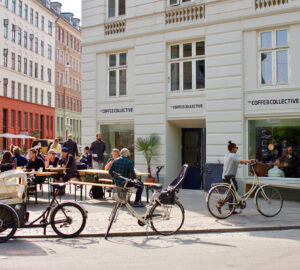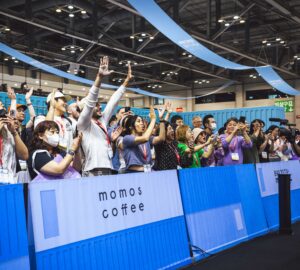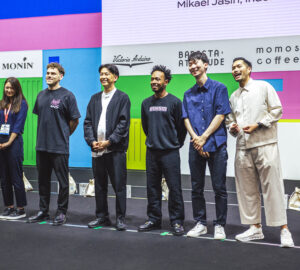Congratulations to J. Park Brannen of Counter Culture Coffee and Camila Ramos of Panther Coffee, your new 2014 champions for the Northeast and Southeast regions, respectively. They’ll move on to compete (with a first-round bye) at the 2014 United States Barista Championship in Seattle, Washington.
Mr. Brannen represented New York City and Counter Culture Coffee at Big Eastern, continuing that company and city’s long, proud tradition of success at the competition level. Mr. Brannen competed using coffee from the tiny East African nation of Burundi, grown near the even tinier village of Buziraguhindwa. Translated into English, that name means “never retreat.” This is a sundried, natural processed coffee from the Kayanza region of Burundi, made up of several subtypes of the Bourbon variety, and developed for Counter Culture Coffee by Ramadhan Salam and Aime Charles Buhire, whose privately owned Coffee Production Company owns and operates the wet mill at Buziraguhindwa.
You can learn much more about Buziraguhindwa by visiting this listing via Counter Culture’s official website.
In Mr. Brannen’s hands, this coffee tasted like “a soft cranberry acidity, molasses sweetness, with tannic sensation but also some nice chocolate in the finish” as espresso. Later in the routine, as a cappuccino, Buziraguhindwa morphed into what Mr. Brannen called “a graham crackery sweetness”, retaining notes of chocolate with an “almond, nutty finish.” Notable routine details included Mr. Brannen’s decision to transfer his espressos from their initial service vessel, conducive to visual evaluation from the judges, into a secondary vessel for incorporation of the shot and eventual flavor evaluation from his judging panel.
He also chose to make all four of his cappuccinos individually, forgoing the more common practice of pulling shots and steaming milk for cappuccino service two beverages at a time. This decision afforded Mr. Brannen a bit of individual focus with each judge – “I think it elevates the service, and gives you more face time with me,” he quipped – but it’s also a more time-intensive way of making cappuccinos.
Labor-intensive personal service takes time. J. Park Brannen finished 25 seconds over his 15 minute time allotment, losing 25 points from his overall score in the process, and he still won. The gambit paid off.
Park Brannen’s signature beverage was avowedly cocktail-themed, a riff on a gin and tonic that included tonic syrup with cinchona bark, “soft herbs”, cranberries, citrus and mulberry, steeped together, then combined with carbonated water and chilled shots of his Burundian espresso. This was a routine with notable intensity and made for some of those “pin drop” moments out in the crowd; there is a physicality and purpose-driven competitiveness that you can see and feel in the crowd when watching a routine like this. But Mr. Brannen, who is from the state of Georgia originally, can also turn on the charm and hospitality when need be, and was at times almost gentle with his judges, communicating with plainspoken language about trust and quality and occasionally breaking the intensity with an aside.
Mr. Brannen moves on with a first round bye at the 2014 United States Barista Championship in Seattle, Washington next April. He’s also earned himself a trip to Ecuador – alongside all of this year’s regional barista competition winners – courtesy of Cafe Imports.
Camila Ramos bounded onto the barista competition scene in a big way three years ago, at the 2012 South East Regional Barista Competition event held in Atlanta’s aging downtown convention center. (The venues are much better now.) She didn’t win that weekend, but she stole the show with a routine adapted from the Cuban diners of her childhood, complete with cigar smoke captured live on stage under glass. It’s still one of the most memorable competition routines we’ve ever seen.
Two years later and Ms. Ramos is rightfully regarded as a must-watch fixture on the competition scene, having appeared at 2013 USBC in Boston and served at last year’s TED Conference as one of the SCAA’S coffee ringers. Panther Coffee, the company from whence she hails in Miami, has gone on to open a second store, and have become a household name among North American speciality coffee enthusiasts, served intermittently at top multiroaster cafes across the United States. Last weekend they were honored at the Good Food Awards, winning twice in fact, for two distinct coffees. This weekend they brought home their first barista competition win. Panther Coffee is having a hell of a 2014 so far.
Oh, and the routine itself was stunning. Beginning the judges with a “cold cupping” prepped during her 15 minute pre-set time, Ms. Ramos was able to set up some dominate flavor notes for her judges that would carry them throughout this routine. Ms. Ramos competed using Panther Coffee’s Nicaragua Kailash, one of the recent Good Food Awards winning coffees mentioned above, and a lively cup with “notes of candy orange, white grape, and jasmine – and a super silky mouthfeel,” according to Ms. Ramos. Nicaragua Kailash comes from the very northern reaches of that country, near its border with Honduras, and was grown by producer Maximo Ramos (no relation), of whom you can watch a short interview video here.
In a highly memorable moment from her routine, Camila Ramos played a recording of Maximo Ramos discussing his coffee for the judges; she then translated this information from the producer’s Spanish into English for her judging panel. There’s a metaphor in there somewhere, about how baristas are translators and conduits for the work of coffee producers around the world, but it was merely implicit, never overstated or forced. The moment felt genuine.
Barrel aging was the hook behind Camila Ramos’ signature drink. That’s a tiny American oak barrel you see up above you, prized by spirits nerds around the world for its ability to impart flavor and complexity on already flavorful and complex beverages. For her Big Eastern winning routine, Ms. Ramos brewed a batch of Nicaragua Kailash at room temperature, and then aged it in this oak barrel for a relatively short stint, just five days. She then combined that barrel-aged brew with several ingredients, including panela, a kind of raw sugar grown throughout Latin America. Hers was sourced from right near where her coffee was grown, resulting in what she called a set of “orchestrated variables…to create a special coffee experience.”
Ms. Ramos moves on with a first round bye at the 2014 United States Barista Championship in Seattle, Washington next April. She’s also earned himself a trip to Ecuador – alongside all of this year’s regional barista competition winners – courtesy of Cafe Imports.
Sprudge.com’s coverage of the 2014 Big Eastern was made possible by direct support from Counter Culture Coffee and Dallis Bros. Coffee. Our 2014 competition coverage is anchored by Nuova Simoenlli.
All photos by Charlie Burt for Sprudge.com.











